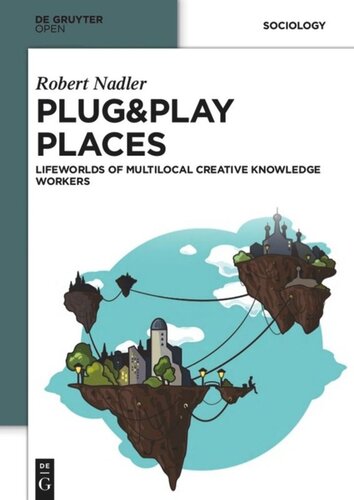

Most ebook files are in PDF format, so you can easily read them using various software such as Foxit Reader or directly on the Google Chrome browser.
Some ebook files are released by publishers in other formats such as .awz, .mobi, .epub, .fb2, etc. You may need to install specific software to read these formats on mobile/PC, such as Calibre.
Please read the tutorial at this link: https://ebookbell.com/faq
We offer FREE conversion to the popular formats you request; however, this may take some time. Therefore, right after payment, please email us, and we will try to provide the service as quickly as possible.
For some exceptional file formats or broken links (if any), please refrain from opening any disputes. Instead, email us first, and we will try to assist within a maximum of 6 hours.
EbookBell Team

4.0
16 reviewsIn post-industrial societies more and more people earn an income in creative knowledge work, a highly flexible labour market segment that demands a geographically mobile workforce. Creative knowledge work is based on an understanding of language, culture and symbolic meanings. This can best be obtained through local and national embeddedness. Yet, this necessity for embeddedness stands in contrast to the demand in geographical mobility. How is this contradiction solved by individuals? What new forms of place attachment does this bring about?
This book introduces a showcase of 25 multilocal creative knowledge workers, who live in different countries at the same time. It investigates how continuous mobility becomes part of their lifeworld, and how it changes their feelings of belonging and practices of place attachment. Applying an innovative methodological mix of social phenomenology, hermeneutics and mental mapping, this book takes a detailed look at biographies and the role of places in mobile lifeworlds.
Plug&Play Places brings forth the idea that places have to be understood as individual items, which are configured and then plugged into the ‘system’ of the own lifeworld. They can be ‘played’ without great effort once an individual needs to make use of them. This new type of place attachment is a form of subjective standardization of place, which complements the well-known models of objective standardization of places.
Plug&Play Places is relevant for scientists who deal with mobility and its impact on individual lifeworlds, with transnational multilocality and with flexibilized labour markets. Furthermore, the book provides a detailed qualitative perspective which can enrich the explanations of quantitative research in the same field. It is an interesting reading also for practitioners engaged in urban planning, housing and real estate development.
Robert Nadler holds a doctoral degree in Urban and Local European Studies from the University of Milan-Bicocca. He is a researcher at the Leibniz Institute for Regional Geography and published on creative industries, multilocality and labour mobility.
Creative Knowledge Workers, Multilocal Lifeworlds, Place Attachment